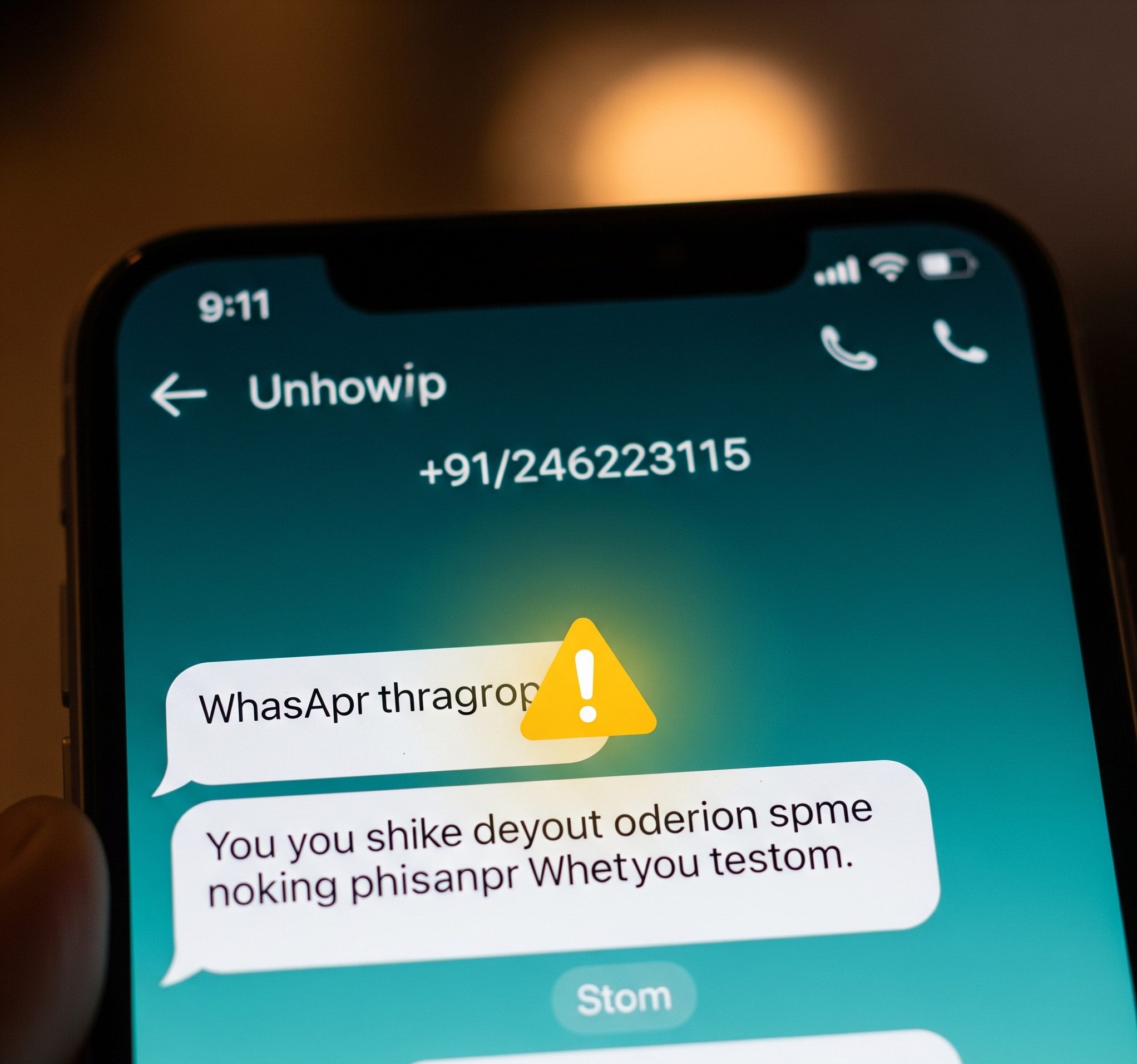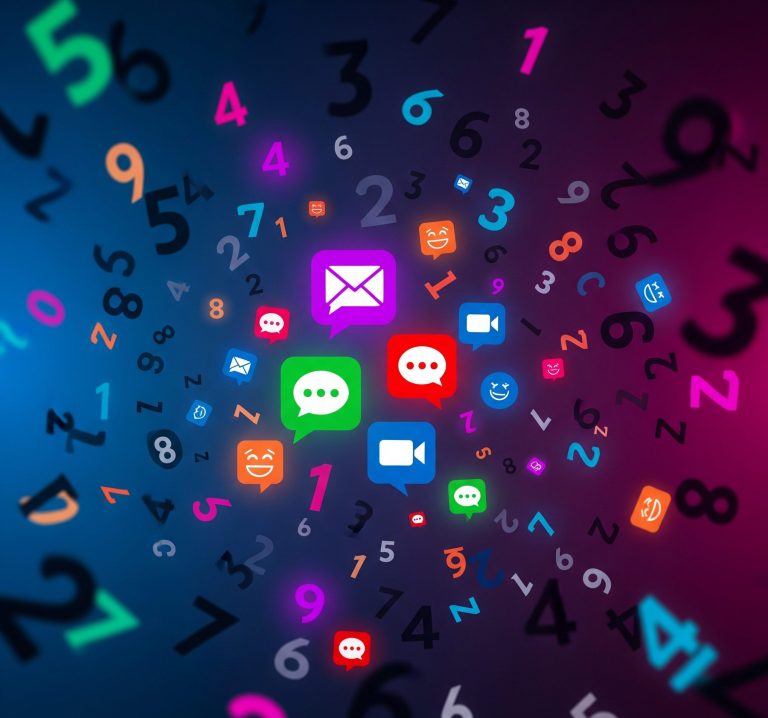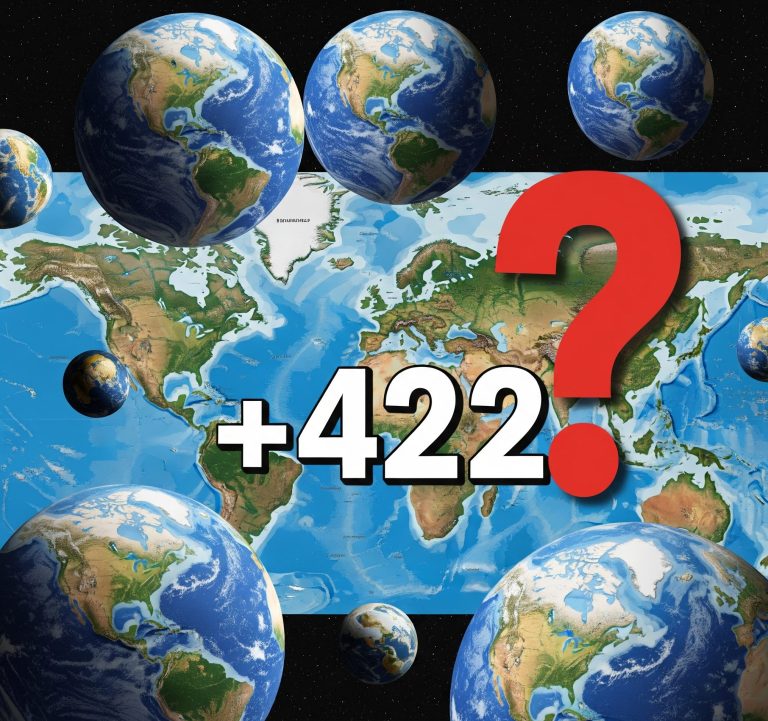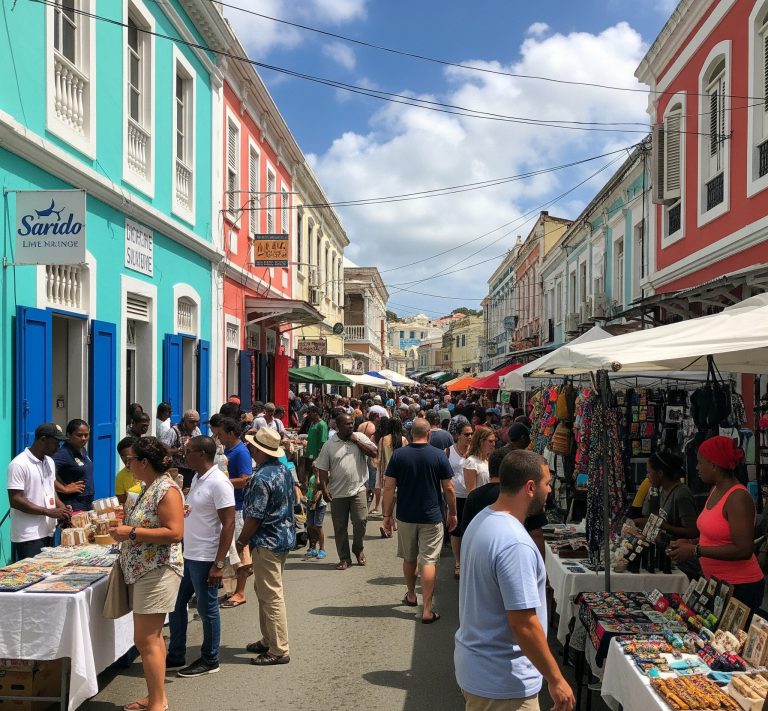In an era of global connectivity, our smartphones have become portals to the world. A casual ping can connect us with friends, family, or colleagues across oceans. But what happens when that ping comes from an entirely unexpected corner of the globe? For many Americans, a common source of these mystery messages is a number beginning with the +91 country code. This sudden arrival of a 91 country code WhatsApp message can spark a range of reactions, from simple curiosity to immediate suspicion.
This article is your guide to navigating these international waters. We’ll explore why you might be receiving these messages, how to distinguish between a legitimate contact and a potential scam, and what steps to take to protect yourself. In a world where business, socializing, and, unfortunately, scams have all gone global, understanding the context behind a message from the +91 country code is more important than ever.
Contents
What is the +91 Country Code?
First and foremost, the “+91” that you see preceding a ten-digit phone number is the international direct dialing (IDD) code, or country code, for India. Just as the United States and its territories use “+1,” India uses “+91” for all incoming international calls and messages.
India is the second-most populous country in the world, with a massive and rapidly growing internet user base. WhatsApp is the dominant messaging platform in India, used by hundreds of millions for everything from daily chats with family to conducting business and processing payments. Given India’s significant role in the global economy, particularly in the tech and customer service sectors, it’s not surprising that communication flows frequently between India and the United States.
Legitimate Reasons for Receiving a 91 Country Code WhatsApp Message
While an unsolicited message from any international number should be approached with caution, there are numerous perfectly valid reasons why you might receive a 91 country code WhatsApp message. The globalized nature of modern life means our personal and professional networks are wider than ever.
Business and Professional Communication
One of the most common reasons for legitimate contact from a +91 number is business. For decades, American companies have looked to India for a variety of business solutions, a practice known as business process outsourcing (BPO). This can include:
- Customer Support: If you’ve recently contacted a major software company, a subscription service, or an e-commerce platform for help, the support agent who follows up with you might be based in India and use a company WhatsApp account.
- Technical Assistance: Similar to customer support, technical help desks for many tech giants are located in India. A technician might use WhatsApp to provide updates on your service ticket or to communicate more easily.
- Recruitment and HR: In the age of remote work, companies are hiring talent from all over the world. You might be contacted by a recruiter from a US-based company whose hiring team is in India. Alternatively, you might be a freelancer or consultant who has been contacted by a potential client based in India.
E-Commerce and Online Shopping
The digital marketplace is a global one. Perhaps you’ve ordered artisanal goods, custom clothing, or specialty items from a vendor based in India. Many small and medium-sized businesses in India use WhatsApp Business accounts to:
- Confirm your order details.
- Send you shipping and tracking information.
- Provide personalized customer service.
In these cases, receiving a 91 country code WhatsApp message is a normal part of the transaction.
Personal Connections
The United States is home to a large and vibrant Indian-American community. It’s possible you’ve been contacted for personal reasons:
- Friends and Family: You may have friends, colleagues, or acquaintances who are Indian nationals, have recently traveled to India, or have family there.
- Wrong Number: The simplest explanation is often the correct one. Someone may have simply made a mistake while trying to type a phone number and accidentally reached you instead of their intended contact in the United States.

The Dark Side: Common Scams and Red Flags
Unfortunately, for every legitimate message, there are countless attempts at fraud. Scammers exploit the anonymity of messaging apps and the sheer volume of international communication to target unsuspecting individuals. Being aware of their tactics is your best defense.
Common WhatsApp Scams from +91 Numbers
While scammers’ methods are always evolving, several common patterns have emerged:
- The “Lucrative Job Offer” Scam: This is one of the most prevalent scams. You receive a message from someone claiming to be a recruiter for a major, well-known company (often a tech giant like Amazon, Google, or a large consulting firm). They offer a high-paying, remote job with flexible hours. The catch? To proceed, you’ll be asked to pay a “registration fee,” an “equipment deposit,” or provide extensive personal information that can be used for identity theft.
- The “Impersonation” Scam: A scammer might use a fake profile, perhaps with a picture scraped from social media, to pretend to be a friend or relative. They’ll claim to be in some sort of trouble—a lost wallet, a medical emergency—and urgently need you to send money.
- The “Lottery or Prize” Scam: The classic “you’ve won!” scam is alive and well on WhatsApp. You’ll be told you’ve won a lottery, a cash prize, or a new car. To claim your winnings, you must first pay a “processing fee” or “tax.” The prize, of course, does not exist.
- The “Tech Support” Scam: In this scenario, the scammer poses as a representative from a company like Microsoft or Apple. They’ll claim that your computer or account has been compromised and that you need to click a link or download an app to fix it. Doing so often installs malware on your device, giving the scammer access to your personal and financial data.
Red Flags to Watch Out For
No matter the story, the warning signs of a scam are often the same. Be on high alert if a message exhibits any of the following:
- A Sense of Urgency: Scammers pressure you to act immediately, so you don’t have time to think critically.
- Offers That Are Too Good to Be True: High-paying jobs with no interview, massive lottery winnings, and other such offers are classic bait.
- Poor Grammar and Spelling: While not always the case, many scam messages are riddled with errors that a professional communication would not have.
- Requests for Money or Financial Information: Legitimate businesses will never ask you to pay for a job offer or provide your bank password via WhatsApp.
- Suspicious Links or Attachments: Never click on links or download files from unknown senders. These can lead to phishing websites or install malware.
- Generic Greetings: Messages that start with “Dear Sir/Madam” or “Hello User” instead of your name are often signs of a mass-messaging scam.
Your Action Plan: How to Stay Safe
If you receive a suspicious 91 country code WhatsApp message, follow these steps to ensure your digital and financial safety.
Step 1: Pause and Do Not Engage
Your first instinct might be to reply, perhaps out of politeness or to ask them to stop. Resist this urge. Replying confirms that your number is active and that you are a potential target for future scams. Do not engage in any conversation.
Step 2: Block and Report the Number
WhatsApp makes it easy to deal with unwanted contacts.
- Block: At the top of the chat, tap on the sender’s number and you will see the option to “Block.” This will prevent them from contacting you again.
- Report: When you block a number, WhatsApp will also give you the option to “Report and Block.” Reporting the contact sends the last few messages from that user to WhatsApp for investigation. This helps the platform identify and ban scam accounts, protecting other users.
Step 3: Verify the Sender’s Identity
If there’s a chance the message could be legitimate—for example, if it claims to be from a company you do business with—do your own verification. Do not use the contact information provided in the message. Instead, go to the company’s official website, find their official customer service number or email address, and contact them through that channel to verify if they tried to reach you.
Step 4: Protect Your Information and Privacy
Never share sensitive personal or financial information with an unverified contact on WhatsApp. This includes your Social Security number, banking details, passwords, or even your home address.
It’s also wise to review your WhatsApp privacy settings. You can control who sees your profile photo, your “last seen” status, and your “about” information. Limiting this visibility to “My Contacts” can make you a less attractive target for scammers.
Conclusion: Communicate Globally, Act Locally
Receiving a 91 country code WhatsApp message is an increasingly common occurrence in our interconnected world. It is not, by itself, a cause for alarm. It can be a legitimate communication from a business you’ve engaged with, a potential employer, or a friend.
However, the potential for scams is real and significant. The key is not to fear international communication but to approach it with a healthy dose of skepticism and a clear action plan. By understanding the common tactics used by fraudsters and knowing the red flags to look for, you can confidently distinguish between a genuine message and a malicious one. Stay vigilant, trust your instincts, and use the tools at your disposal to block and report suspicious activity. In doing so, you can enjoy the benefits of global connection while keeping yourself securely in control.







